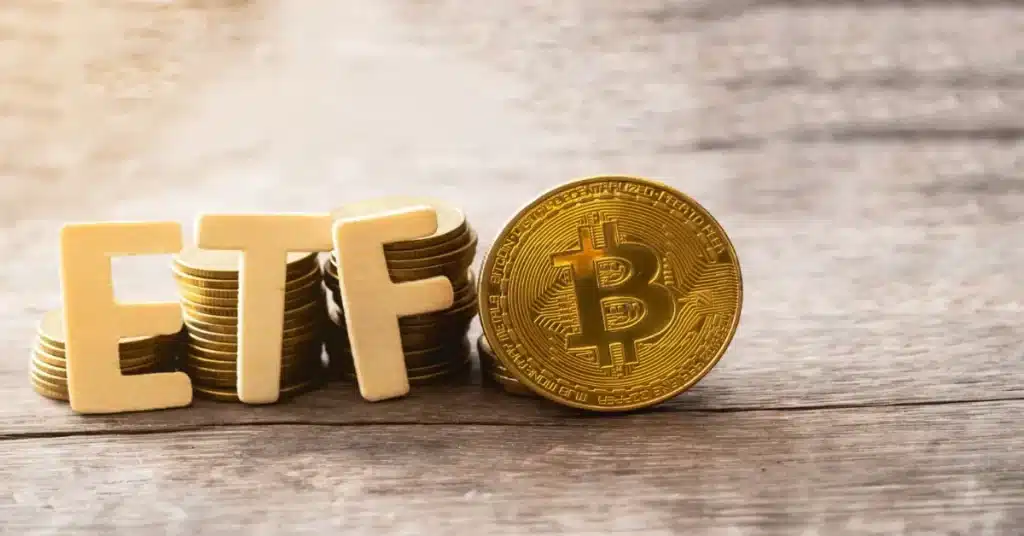Cryptocurrency
Bitcoin ETFs Approved for the First time by the SEC, Boosting Crypto Advocates

(Z.News) – Cryptocurrency aficionados are predicting that the approval of the first spot bitcoin exchange-traded funds by the US Securities and Exchange Commission will attract more institutional and individual investors.
Sponsors of the eleven exchange-traded funds (ETFs) that were approved for listing by the leading US securities regulator included both well-established companies like Fidelity and Invesco and up-and-coming digital firms like Grayscale and Ark Invest.
To promote its iShares Bitcoin Trust, BlackRock will ring the opening bell at Nasdaq on Thursday morning, marking the beginning of trading for the first funds. These funds trade on exchanges like stocks and have unique tax protection in the US.
After months of waiting and a contentious legal fight, the approval has finally arrived. As a cherry on top of an already eventful day, hackers momentarily took over the SEC’s X social media account and fraudulently claimed that the applications had already been granted, causing Bitcoin’s price to fluctuate wildly.
Thursday morning saw Bitcoin trading 3% higher at around $47,000, which is still significantly lower than its $69,000 peak in November 2021 but over three times higher than its $16,000 low in December 2022 following the now-infamous crypto exchange FTX’s bankruptcy.
Several markets have already offered spot bitcoin ETFs
Although several markets have already offered spot bitcoin ETFs, US approvals are anticipated to signal a significant turning point for the most popular and liquid cryptocurrency unit.
Previously, US institutional and individual investors had to choose between purchasing on unregulated exchanges or paying more for exchange-traded funds (ETFs) that invest in bitcoin futures; now, they may have direct exposure to the currency through a regulated instrument.
“It’s a huge milestone; it’s recognition of bitcoin being a large-scale traditional investment,” commented Jad Comair, chief executive of Melanion Capital, the first business to create a bitcoin-themed ETF in the EU. “We’re letting people into Wall Street.”
The ruling also represents the SEC’s about-face. For over a decade, the regulator fought against spot bitcoin ETFs, citing the manipulated and fraudulent nature of cryptocurrencies as the reason.
However, Grayscale was able to overturn the watchdog’s previous rejection of a spot Bitcoin application last year. In August, a federal appeals court determined that the judgment lacked reasonable basis, leading to calls for the SEC to reconsider its position.
Although some ETF watchers are skeptical that huge quantities would pour into the products, crypto aficionados are wagering that the ETFs will significantly increase demand for digital assets. In 2021, ProShares raised $1 billion in just two days after launching the first exchange-traded fund (ETF) based on bitcoin.
However, organizations concerned about consumer safety and investors’ capital have voiced concerns that making the product accessible through an ETF would lure regular people to put their money into a market that has a history of scandals and wild price swings.
If approved, the clearance will “unleash crypto predators on tens of millions of investors and retirees but will also likely undermine financial stability,” according to Better Markets president Dennis Kelleher.
In a statement, SEC Chair Gary Gensler attempted to diffuse the conflict. Investors should “remain cautious about the myriad risks associated with bitcoin and products whose value is tied to crypto,” he said, adding, “While we approved the listing and trading of certain spot bitcoin ETP shares today, we did not approve or endorse bitcoin.
“After a day of gains of up to 1.5% due to the misleading post on the SEC’s X account, bitcoin prices fell by as much as 3.4% following the regulator’s correction. Aspiring exchange-traded funds are comparable as they all put their money into Bitcoin. Except for Grayscale and Hashdex, all firms want to debut naturally.
Grayscale wants to turn its $29 billion bitcoin trust into an exchange-traded fund (ETF), and Hashdex wants to turn its bitcoin futures fund into a spot fund. The new ETF suppliers are already engaged in a pricing battle with each other. Several investment firms have pledged to forego costs in the first few months of trading, and this week alone we’ve seen updates from BlackRock, Fidelity, and others that state their fees would be less than half a percent.
The chief executive of Grayscale, Michael Sonnenshein, told the Financial Times that his business has reduced its cost from 2% to 1.5% but had no plans to decrease it anymore.
He went on to say that GBTC “is coming to market in a very differentiated way from other ETF issuers that are starting from zero and are just getting their product launched” since it is a conversion from an existing product.
Cathie Wood, of Ark, described Bitcoin as a “public good” and expressed her confidence in utilizing the product as a loss leader. Her business would not apply its 0.21% charge until six months after debut or until its ETF exceeds $1 billion.
“Our goal is to ensure that information is accessible and made as accessible as possible,” Wood stated to the Financial Times. Making the most money possible is not our goal here. Other actively managed goods are available to us and can be of assistance.
The funds will deviate from the standard practice of exchange-traded funds (ETFs) by using cash instead of the underlying asset—bitcoin in this case—to generate and redeem new shares.
Despite the SEC’s initial opposition to a spot bitcoin ETF for over a decade, ProShares was able to establish the first of several ETFs that contain bitcoin futures in late 2021.
Notable ETF providers soon followed Grayscale’s lead and submitted their applications; the SEC then began collaborating with these firms to refine their plans.
The issuers have recently moved to a cash-based creation process, disclosed which financial institutions would issue and redeem shares, and outlined their plans to prevent market manipulation.
Wood said that the SEC, while being “one of the most skeptical regulators in the world and has gotten to the finish line and approved it,” maintained its stance. “And you know, this has been the subject of extensive battle testing.”
Trending Topics:
Israel Officials Support Gaza Destruction, Court Hears
































